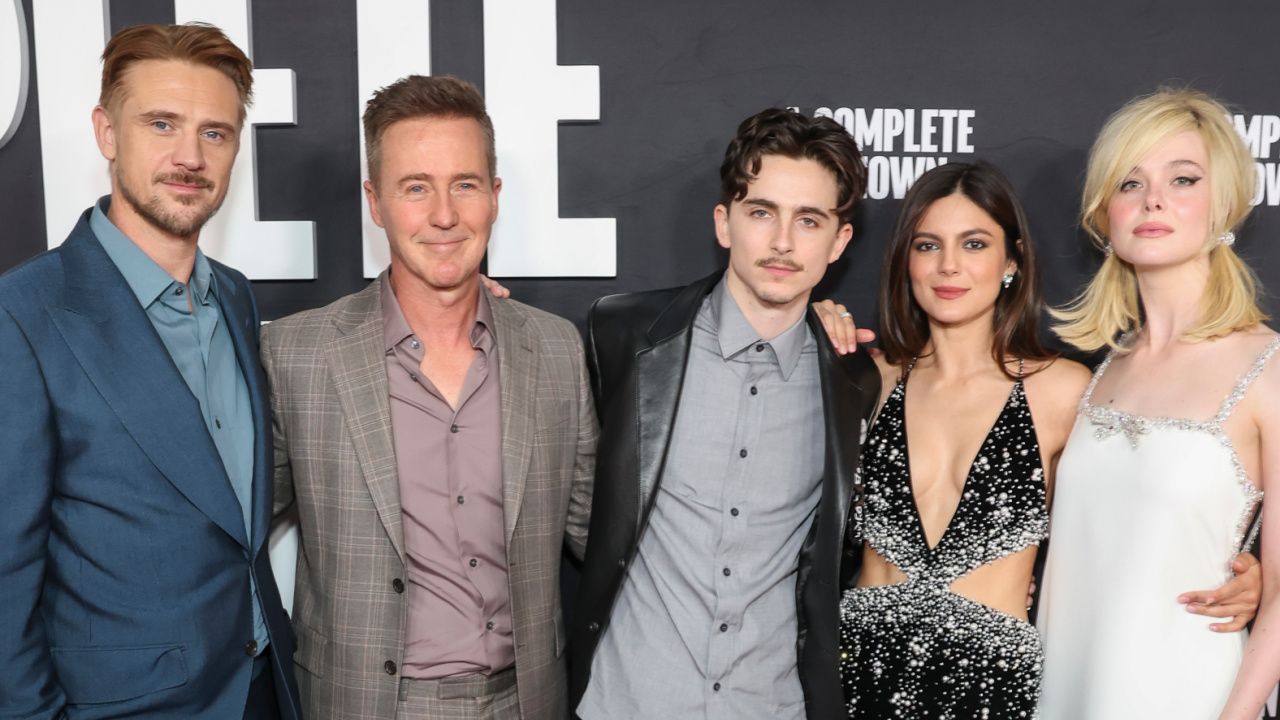
(L to R) Boyd Holbrook, Ed Norton, Timothée Chalamet, Monica Barbaro, and Elle Fanning attend Searchlight Pictures’ ‘A Complete Unknown’ World Premiere on Dec 10, 2024 in Los Angeles.
‘A Complete Unknown,’ which stars Timothée Chalamet as Bob Dylan, chronicles the music icons early days, from his initial arrival in New York to his taking the folk scene by storm with his powerful lyrics and catchy tunes.
Directed by James Mangold, who previously brought the world the likes of ‘Walk the Line’ (about fellow music sensation Johnny Cash) and ‘Ford Vs. Ferrari’ (the true life tale of the clash between the car companies around the famed Le Mans race), the new movie sees Dylan shaking up his act by going electric and siring rock as the voice of a generation –– defining one of the most transformative moments in 20th century music.
Related Article: Movie Review: ‘A Complete Unknown’
With a cast that also includes Monica Barbaro as fellow folk pioneer Joan Baez, Boyd Holbrook as Johnny Cash, Edward Norton as veteran performer Pete Seeger and Elle Fanning as Sylvie Russo, a character based on Dylan’s real-life girlfriend, artist Suze Rotolo.
The movie has already made a strong entry into the awards race, and Searchlight Pictures held a virtual press conference with Mangold, Chalamet, Fanning, Barbaro, Holbrook and Norton.
Here are 10 things we learned at that press conference, edited for clarity and length. ‘A Complete Unknown’ will be in theaters on December 25th.
1. Mangold was Transfixed by the Real Story the Film is Based On
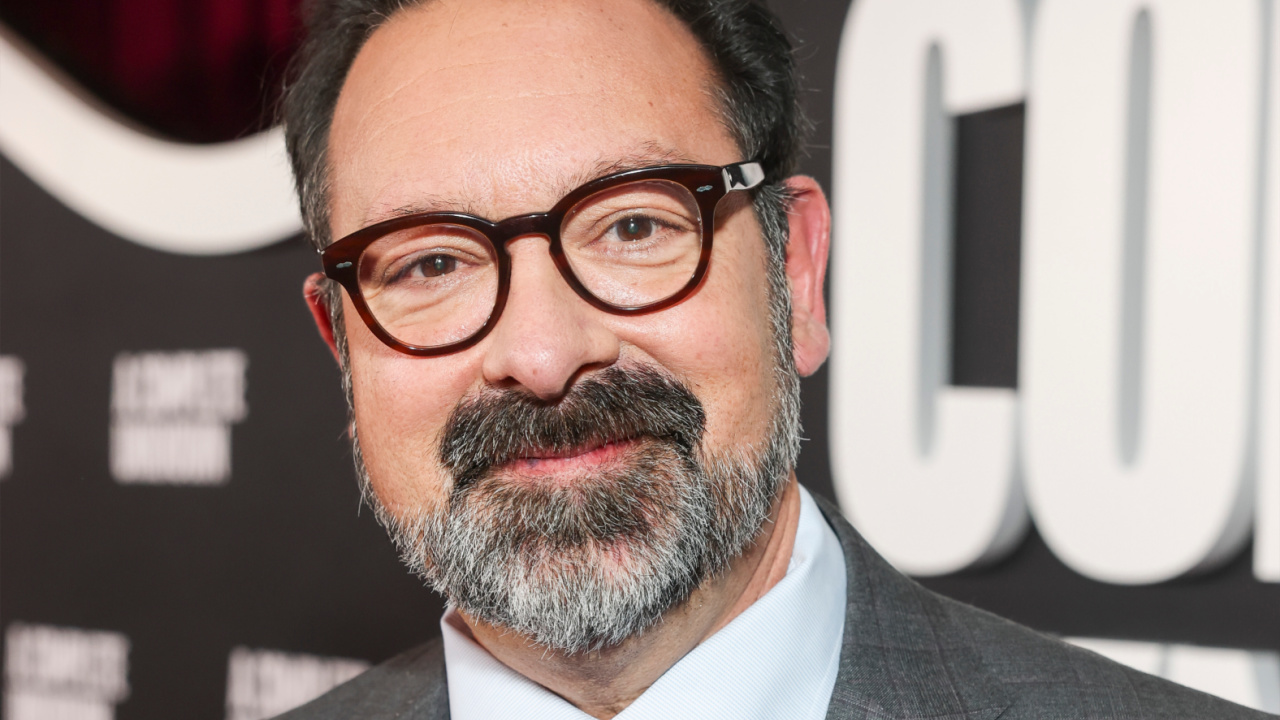
Director James Mangold attends Searchlight Pictures’ ‘A Complete Unknown’ World Premiere on Dec 10, 2024 in Los Angeles.
Mangold and Jay Cocks adapted the script from Elijah Wald’s book ‘Dylan Goes Electric! Newport, Seeger, Dylan and the Night that Split the Sixties.’
James Mangold: It came about because there was a wonderful book by Elijah Wald that covered this period and did a really beautiful job of bracketing this moment, this convulsion that happened in Newport 65 and what led up to it. Then as Jay Cocks and I were developing the script, it occurred to me that this fable really should begin with Bob’s arrival in New York. I found it almost like a fairy tale. This idea of a young man, almost a man with no name or changing his name upon arrival with a few bucks in his pocket, carrying a guitar case and a Moleskine notebook with some scrawling in it, landing at the bedside of his hero in a VA hospital in New Jersey to sing him his song. He’s traveled all this way to sing. I mean, that this is a true story blows my mind.
2. Chalamet Went Deep into Research for the Role
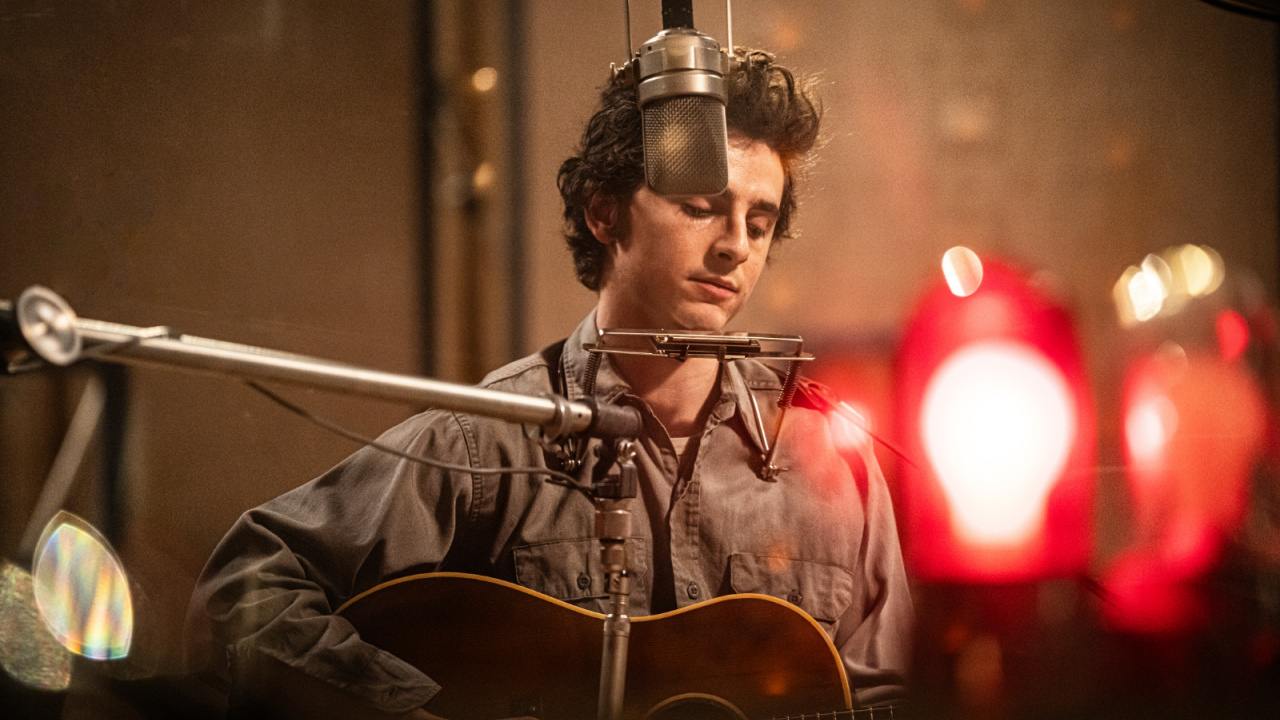
Timothée Chalamet in ‘A Complete Unkown’. Photo by Macall Polay, Courtesy of Searchlight Pictures. © 2024 Searchlight Pictures All Rights Reserved.
With a few years between landing the role and starting work on the film, the actor had time to prepare to play Dylan.
Timothée Chalamet: It was daunting because it is Bob Dylan. At the beginning of the process, I wasn’t in the Church of Bob the way I am now, the way I’m a humble disciple now. The years I got to prepare for this role is unlike the time I’ve had for any other role. So at some point it stopped becoming work and it just became a process of osmosis and just living in the material, living in the world of the sixties. When it came time to shoot with Edward and Monica and Elle and Boyd, we were constantly throwing around little facts or tidbits or video clips or letters we were finding about these characters from the period.
3. Monica Barbaro Also Threw Herself into Preparing to Play Joan Baez
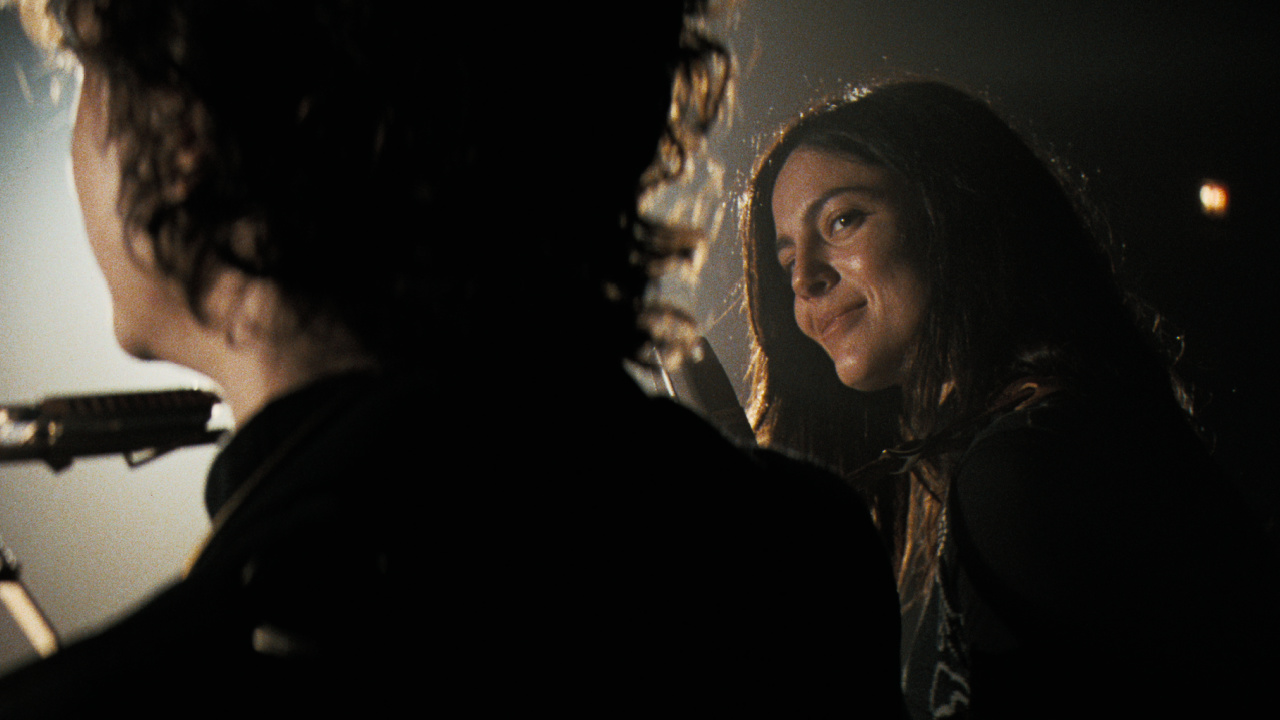
(L to R) Timothée Chalamet and Monica Barbaro in ‘A Complete Unknown’. Photo Courtesy of Searchlight Pictures. © 2024 Searchlight Pictures All Rights Reserved.
As with Chalamet, the ‘Top Gun: Maverick’ actor had a lot of work to get ready to be Baez.
Monica Barbaro: When Jim cast me in the film, I had five months to learn to sing and play guitar, and that did not feel like a long time. So, I was very anxious. Yet during the strike, we weren’t allowed to work with our coaches necessarily, but it was this cool time to take the training and process the work and be a little bit more solo with it, stretch and try things on my own. I think that was around the time when I started working on singing and playing at the same time, which was just a whole other level of musical proficiency that I just did not have and did not understand. Sometimes it’s like patting your head and rubbing your stomach.
4. Edward Norton Was a Big Fan of Dylan, Seeger and co. Before Taking on the Film
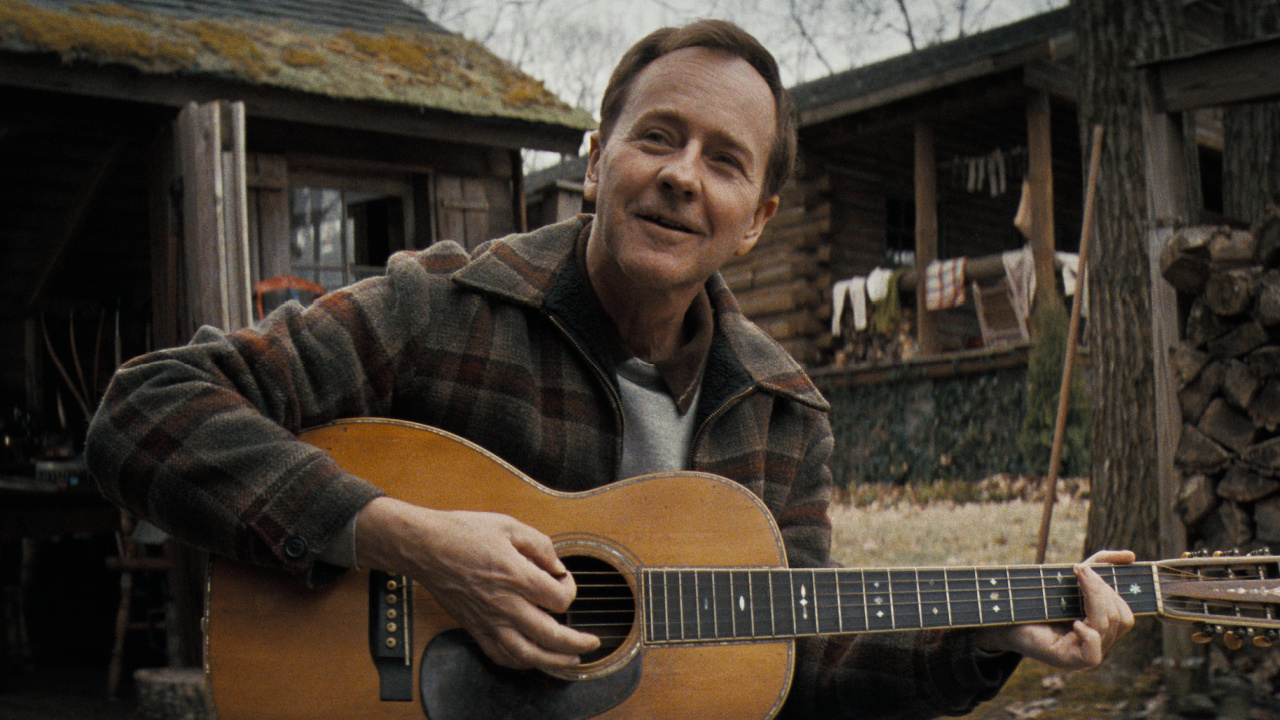
Edward Norton in ‘A Complete Unknown’. Photo Courtesy of Searchlight Pictures. © 2024 Searchlight Pictures All Rights Reserved.
Norton’s familiarity with the main players was a big plus in his own preparation.
Edward Norton: I’ve marinated in the Church of Bob for my whole adult life. If you’re someone who came up in New York City in the theatre with even a passing interest in human affairs, Pete Seeger was a paragon. He was a folk singer who cleaned up the Hudson River. You knew about Pete Seeger. My first job as a waiter was right next to a restaurant that was in Pete Seeger’s house, and I used to go there all the time. I’ve played guitar for many years, and I know this music. So there’s the preparation that wasn’t… I didn’t walk into it happily naive to the ethos of it or the essence of it. Banjo was a new animal for me. They say dying is easy, comedy is hard. Well, I think guitar is easy and banjo is hard. So that was fun. That was a lot of fun.
5. Elle Fanning Had to Get Creative Given Her More Fictionalized Role
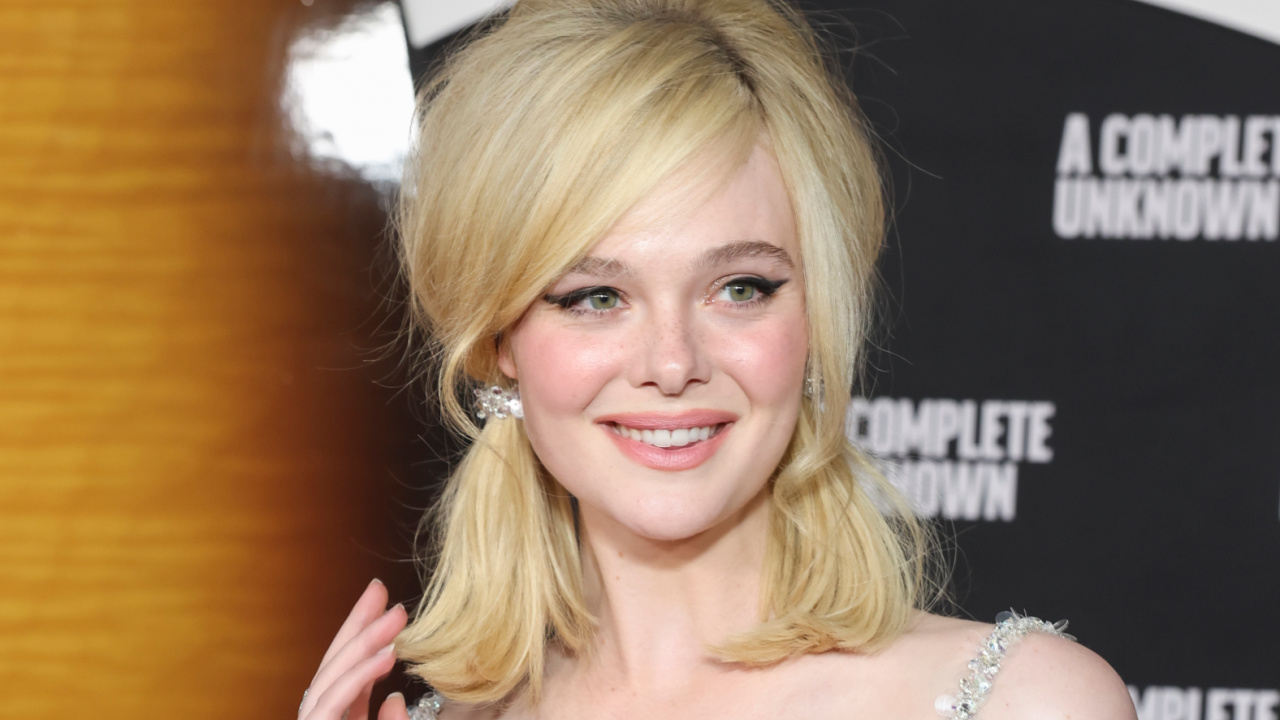
Elle Fanning attends Searchlight Pictures’ ‘A Complete Unknown’ World Premiere on Dec 10, 2024 in Los Angeles.
With Sylvie based on a real-life figure, but with more flexibility, Fanning had different challenges.
Elle Fanning: You can do the facts and the searching, but really your bible is the script, and working with your actors and talking to Jim and carving out a story and a cinematic experience that people are going to care about. I felt like I cared so much for her on the page, and her emotion just jumped out at me. So I wanted to do justice of honoring know Suze and Bob’s relationship, but also making sure that that emotional weight was there in the part that I had.
6. Boyd Holbrook Was Intimidated Playing Johnny Cash For a Big Reason
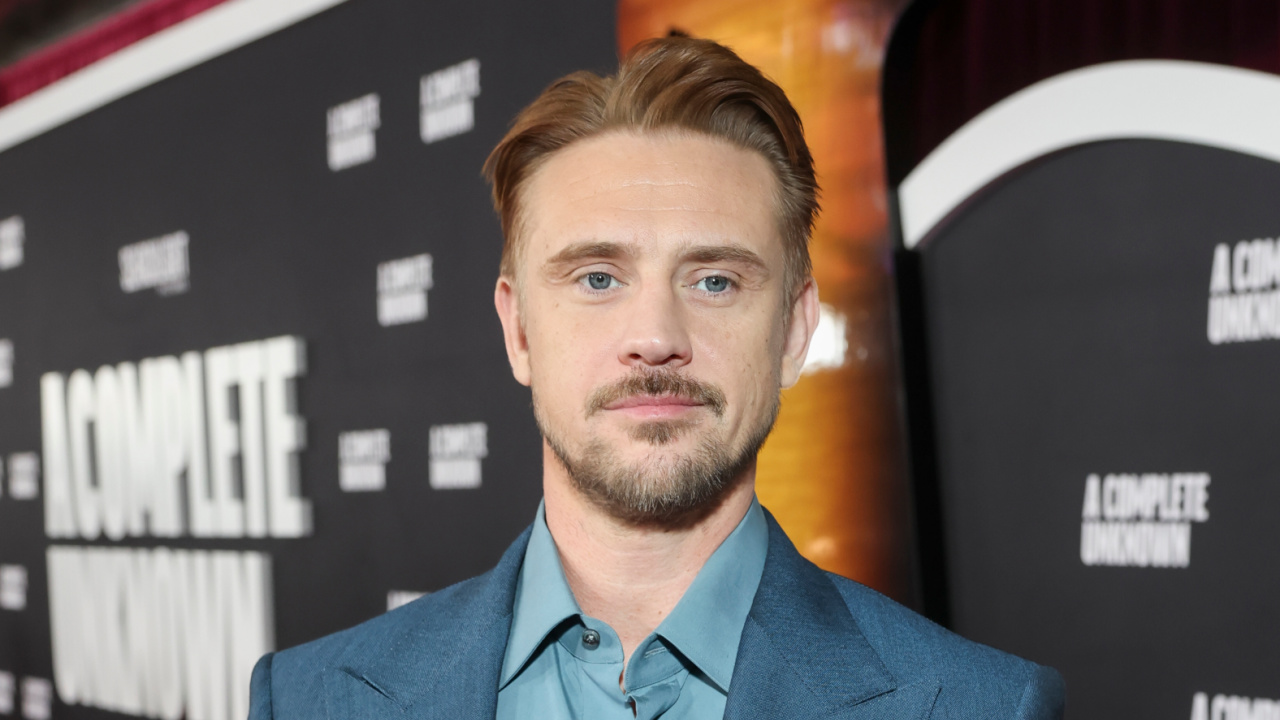
Boyd Holbrook attends Searchlight Pictures’ ‘A Complete Unknown’ World Premiere on Dec 10, 2024 in Los Angeles.
Holdbrook had good reason to be nervous, since Mangold had already shepherded Joaquin Phoenix to an Oscar nomination playing Cash in ‘Walk the Line.’
Boyd Holbrook: Yeah, it was kind of daunting in the beginning when Jim asked me to do it. But following Joaquin’s great performance, it was daunting in a way, but then as I understood what the part was about and its functionality in Bob’s life, it was a really exciting challenge. I didn’t play and sing at the same time. I think I lied to you, Jim. I think I told you I did! But there’s this extraordinary pressure that bottlenecks you down into the day of shooting where you have to figure this out. So for me it was really exciting to do it in a fresh way, and to see what this other version of Johnny Cash was, and a mentor to Bob. Maybe not a mentor, but a comrade.
7. Mangold Hopes Audiences Seek Out Big Screens to See the Movie
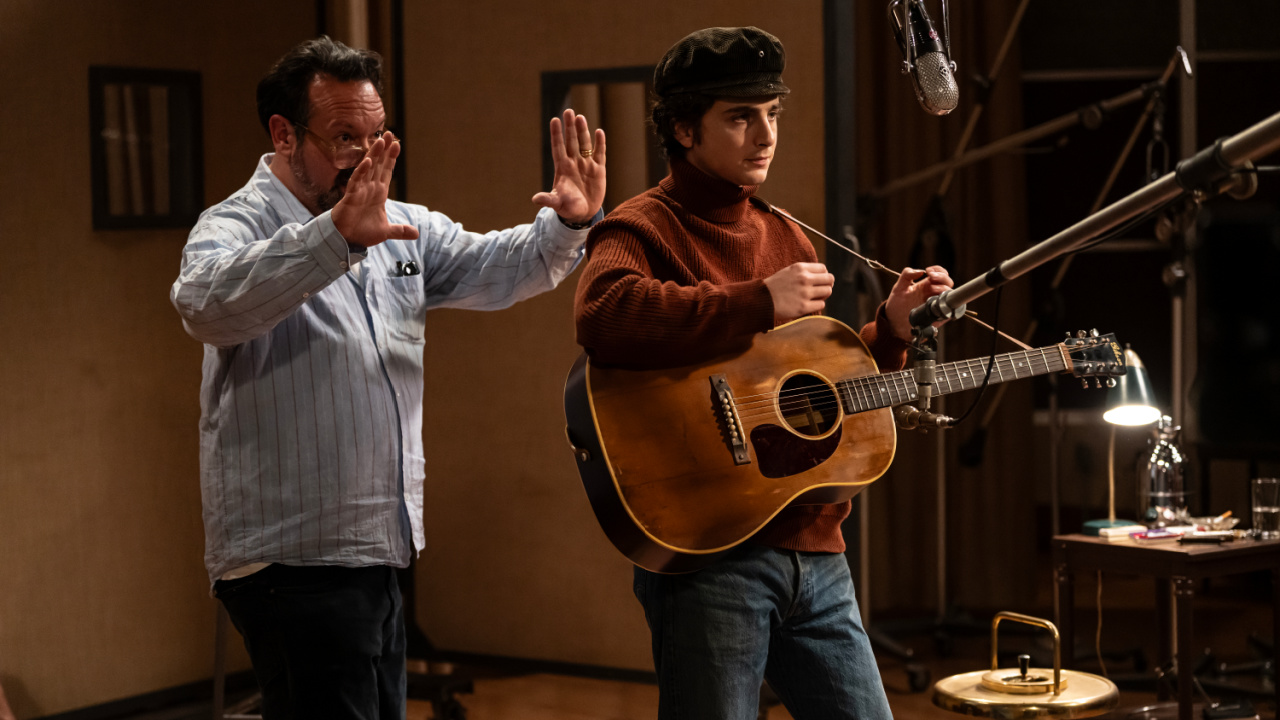
(L to R) Director James Mangold and Timothée Chalamet on the set of ‘A Complete Unkown’. Photo by Macall Polay, Courtesy of Searchlight Pictures. © 2024 Searchlight Pictures All Rights Reserved.
Though so many movies go to streaming these days and something such as ‘A Complete Unknown’ might not be on the scale, of, say ‘Gladiator II,’ the director feels it deserves to be seen on a big screen.
Mangold: I want all our movies to be seen on the big screen. That’s why we make them. I’ve been very lucky so far, particularly movies like this where it’s getting harder and harder to get them made and going out theatrically. But it is a singular experience, and I think that this movie has a kind of scale to it that really asks for that kind of experience. The enveloping sound of these concerts, whether intimate or gigantic, is just our sound team did awesome work on this movie, and it’s an anamorphic film, so it’s wide screen and just looks amazing on the big screen.
8. Part of Chalamet’s Road to Dylan Included Visiting the Musician’s Old Haunts
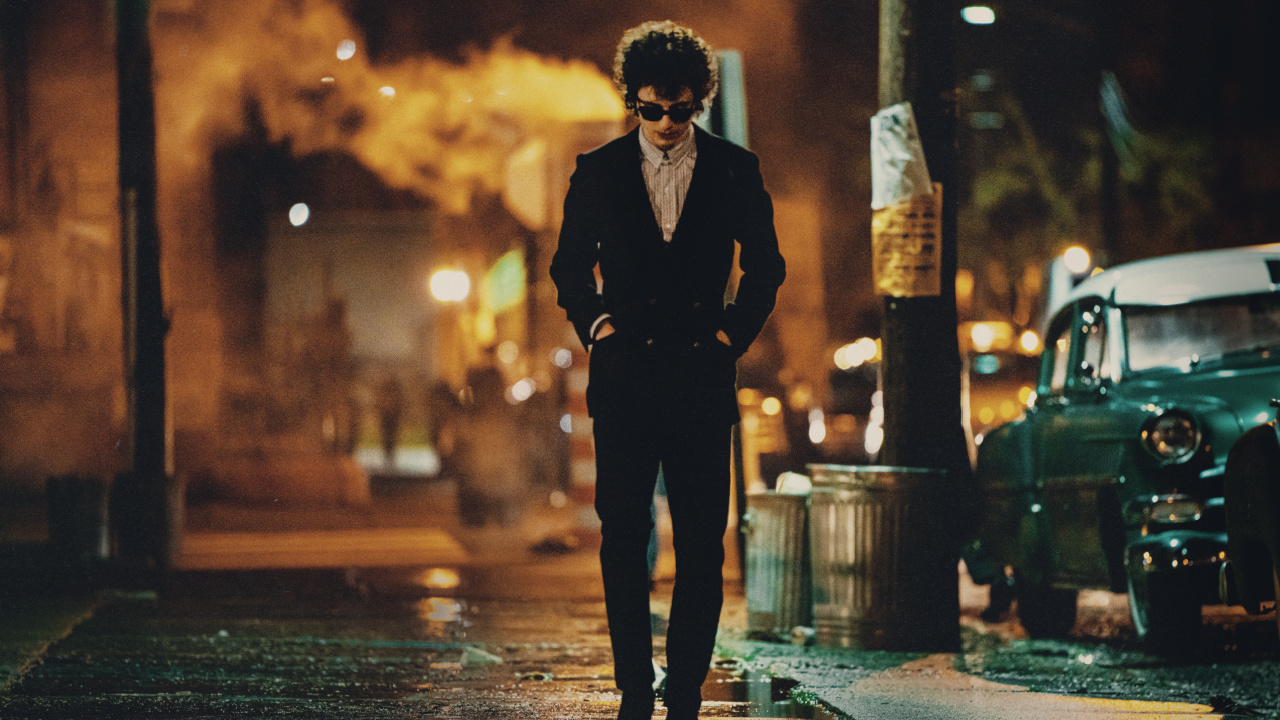
Timothée Chalamet in ‘A Complete Unkown’. Photo by Macall Polay, Courtesy of Searchlight Pictures. © 2024 Searchlight Pictures All Rights Reserved.
The actor didn’t just dig into Dylan’s musical side –– he also made pilgrimages to where he was born in Minnesota.
Chalamet: They were hugely informative. I don’t think they were informative in an academic sense. I wasn’t trying to excavate the exact places he walked or understand what homework was assigned on a specific day. I really just wanted to put myself in the environment, the weather, the roads, the iron ore of it all that gives him that grit in his voice, that to this day makes it so surprising and impressive that he wrote songs like “North Country Blues,” or “Rocks and Gravel” and stuff that was beyond a 19– or 20–year–old at the time. Again, it was a process of osmosis. It wasn’t anything prescriptive.
9. Chalamet Sung Most of the Songs Live in the Film
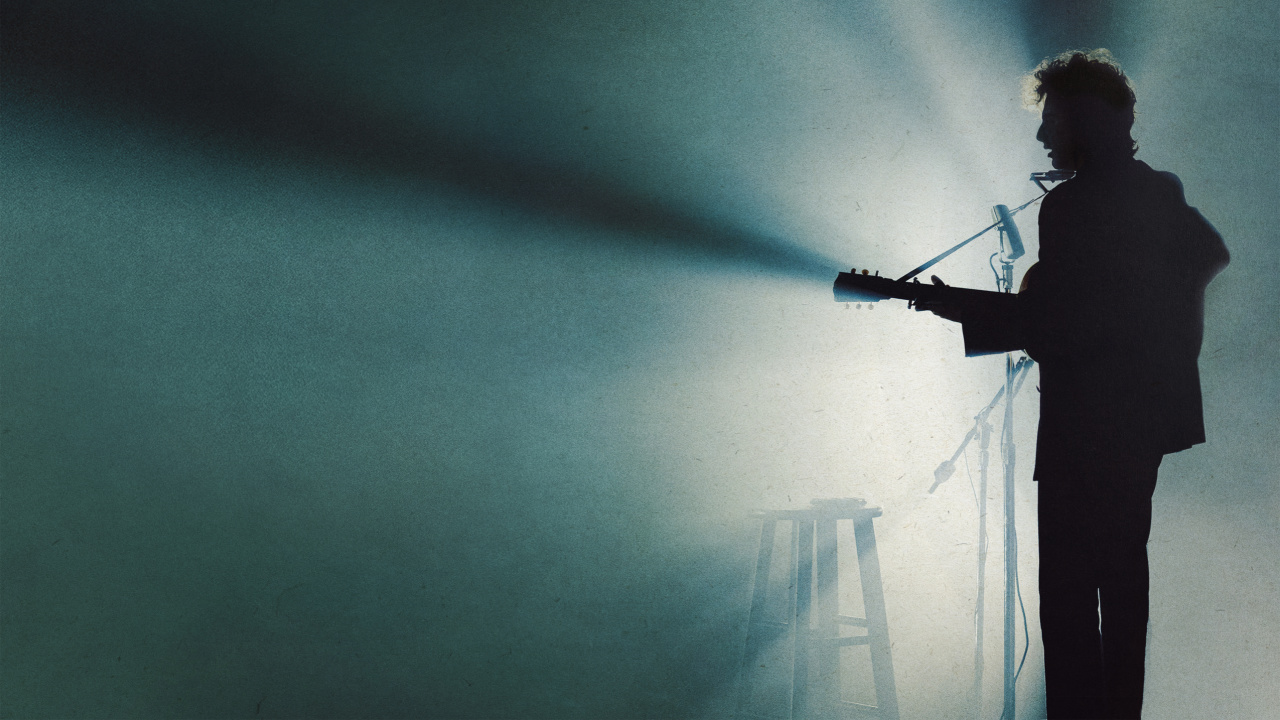
Timothée Chalamet in ‘A Complete Unkown’. Photo by Macall Polay, Courtesy of Searchlight Pictures. © 2024 Searchlight Pictures All Rights Reserved.
Though Mangold and his team had crafted the usual pre-recorded soundtrack for Dylan and co., Chalamet had his director’s confidence to perform on set.
Mangold: We laid down what’ll be a soundtrack album full of music in the studio. But then we started shooting and the first scene we did, you guys have seen the movie, the first scene with singing in it that we did was the one in which he sings a song for to Woody Guthrie in the hospital. Timmy came to me and said, “I just want to do it.” There was this whole moment on set where people behind the scenes are, “Well, the shots will never cut. He’ll be singing a different tempo from one shot to the next and we can’t get a good recording here.” I have my hats off to Timmy because he was the one who was like, “I just want to do it.” And he did. All I did was run interference for him in the sense of going, “Whatever happens, we can fix it later.” We didn’t have to fix a thing.
10. Fanning was Blown Away Hearing Chalamet Play for the First Time
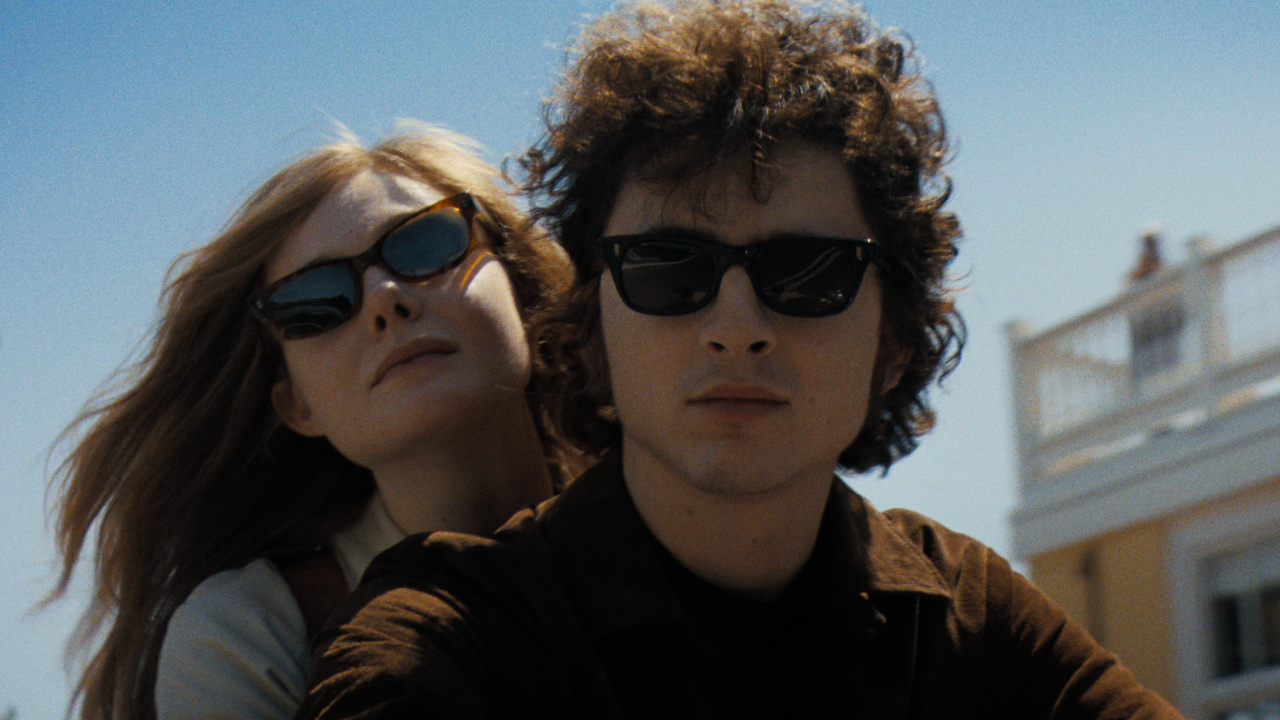
(L to R) Elle Fanning and Timothée Chalamet in ‘A Complete Unknown’. Photo Courtesy of Searchlight Pictures. © 2024 Searchlight Pictures All Rights Reserved.
Elle Fanning wasn’t sure what to expect when it came to Chalamet playing Dylan, but he really nailed the role.
Fanning: The first day on set for me was when he’s singing, “A Hard Rain’s Going to Fall.” I am an audience member in that scene. I don’t have any lines or anything, but I remember I had such an anticipation, like butterflies. You could feel like this bubbling anticipation. The audience knew what they were about to see, but I didn’t know what to expect. Obviously I know he’s a brilliant actor, and I was, ‘Of course he’s going to knock it out of the park.’ He gave us a full concert.
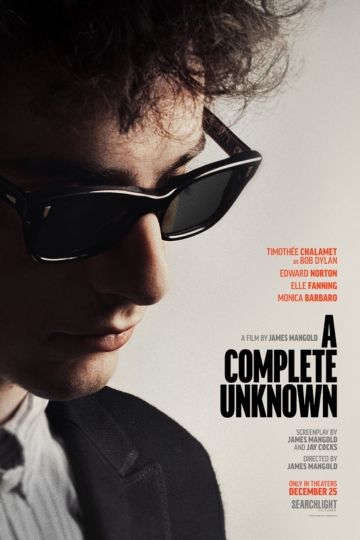
“The ballad of a true original.”
Set in the influential New York music scene of the early 60s, A COMPLETE UNKNOWN follows 19-year-old Minnesota musician BOB DYLAN’s (Timothée Chalamet) meteoric… Read the Plot
What is the plot of ‘A Complete Unknown’?
Set in the influential New York music scene of the early 60s, ‘A Complete Unknown follows 19-year-old Minnesota musician Bob Dylan’s (Timothée Chalamet) meteoric rise as a folk singer to concert halls and the top of the charts – his songs and mystique becoming a worldwide sensation – culminating in his groundbreaking electric rock and roll performance at the Newport Folk Festival in 1965.
Who is in the cast of ‘A Complete Unknown’?
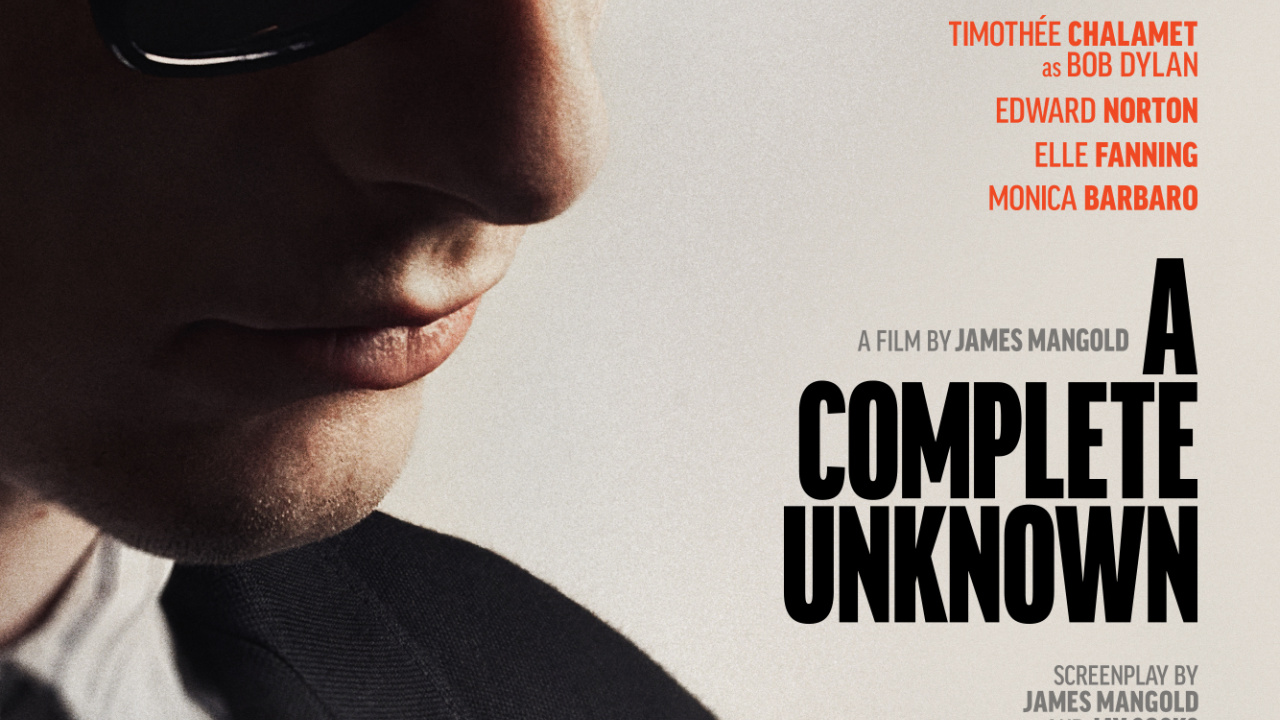
‘A Complete Unknown’ opens in theaters on December 25th.

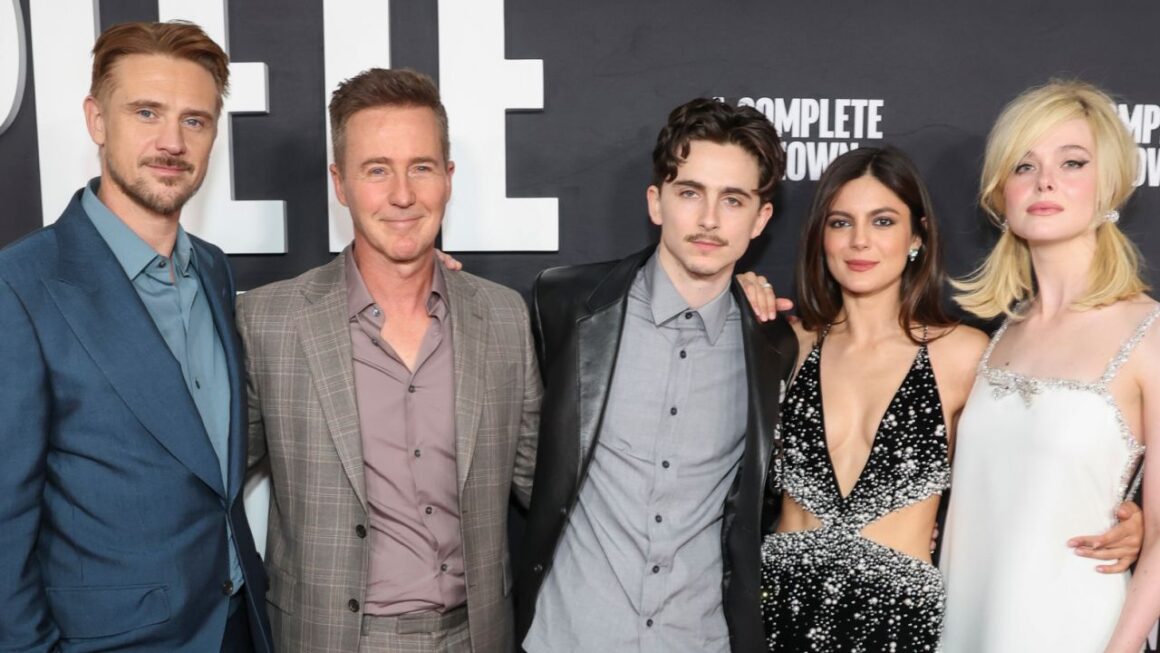
Leave a Reply